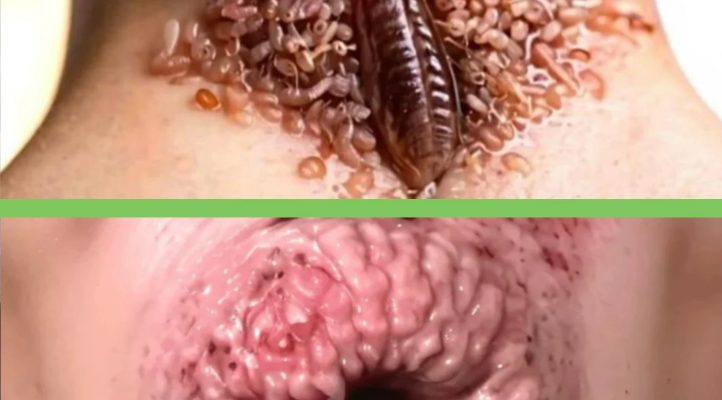Our bodies constantly send signals about our health. Recognizing these warning signs can help you address potential health issues before they escalate into serious conditions. Ignoring these symptoms could mean overlooking critical messages from your body. Here are eight important body symptoms you should watch out for and what they might indicate.
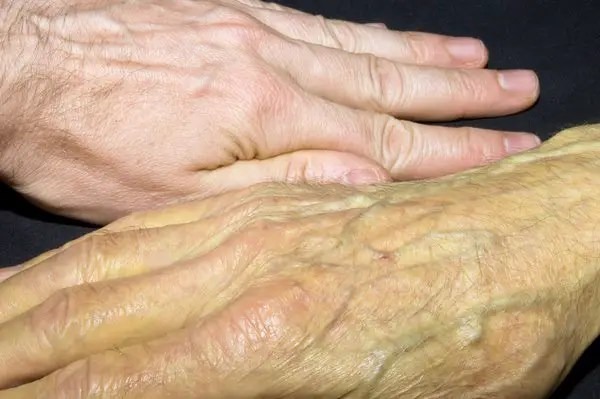
What It Means:
If you notice a yellowish tint to your skin or the whites of your eyes, this could be a sign of jaundice, which is commonly linked to liver issues. Jaundice occurs when an excess of bilirubin, a yellow pigment produced during the breakdown of red blood cells, accumulates in the bloodstream.
Possible Causes:
- Liver disease (such as hepatitis or cirrhosis)
- Gallbladder issues
- Pancreatic disorders
What to Do:
If you observe persistent yellowing of your skin or eyes, consult a healthcare professional promptly for a liver function assessment.
2. White Dots on Nails
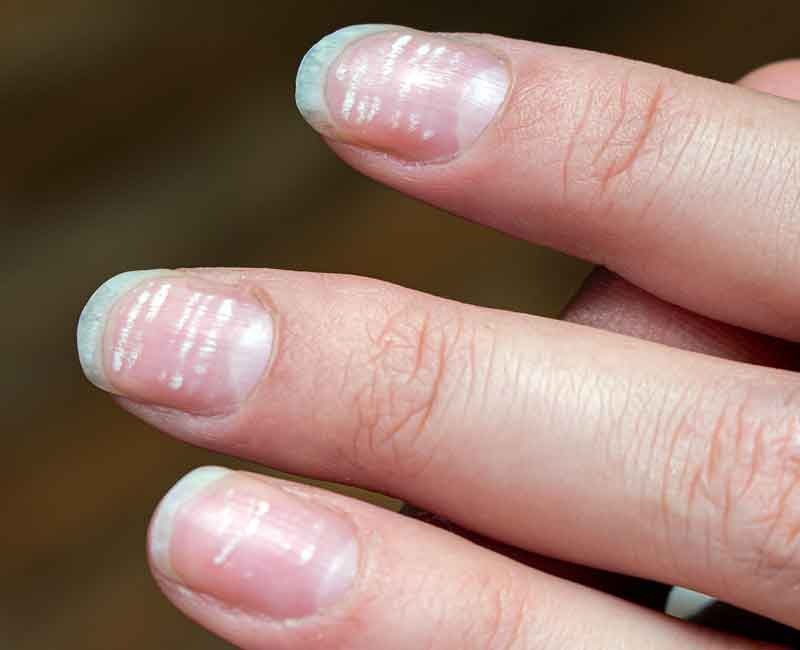
What It Means:
White spots or dots on your nails, medically known as leukonychia, are usually harmless but may indicate nutritional deficiencies.
Possible Causes:
- Deficiency in essential nutrients such as zinc, calcium, or protein
- Minor trauma or injury to the nail
- Underlying health conditions like anemia or fungal infections
What to Do:
If these white spots persist or are accompanied by other symptoms like brittle nails or hair loss, consider consulting a healthcare provider for a nutritional evaluation.
3. Blisters and Cracks on Lips
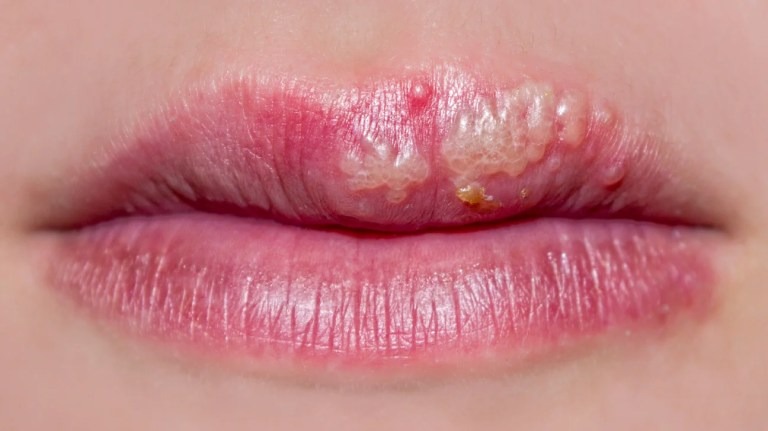
What It Means:
Cracked or blistered lips can be a sign of dehydration or an allergic reaction to certain lip products.
Possible Causes:
- Lack of hydration
- Nutritional deficiencies (such as vitamin B or iron)
- Allergic reactions to lip balms or toothpaste
What to Do:
Stay hydrated and opt for gentle, hypoallergenic lip care products. If the condition persists, consult a dermatologist to rule out underlying health issues.
4. Mouth Sores
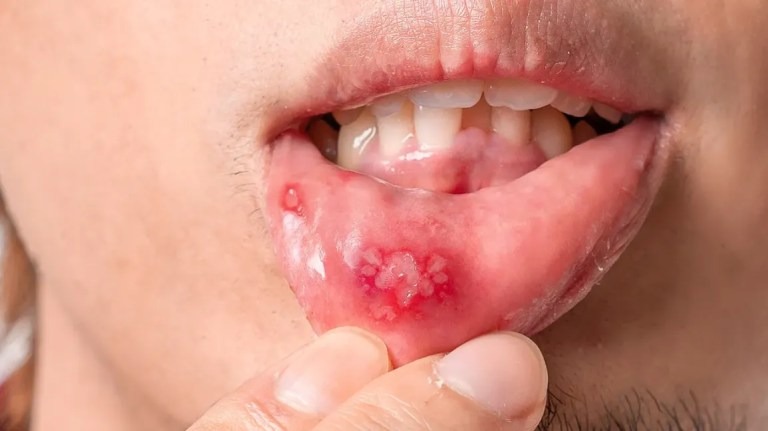
What It Means:
Painful sores inside your mouth, also known as canker sores, can result from stress, hormonal fluctuations, or vitamin deficiencies.
Possible Causes:
- Vitamin B-12 or iron deficiency
- Stress or hormonal changes
- Autoimmune disorders
What to Do:
If mouth sores recur frequently or take a long time to heal, seek medical advice to address potential deficiencies or underlying conditions.
5. White Eyelid Pimples (Styes)
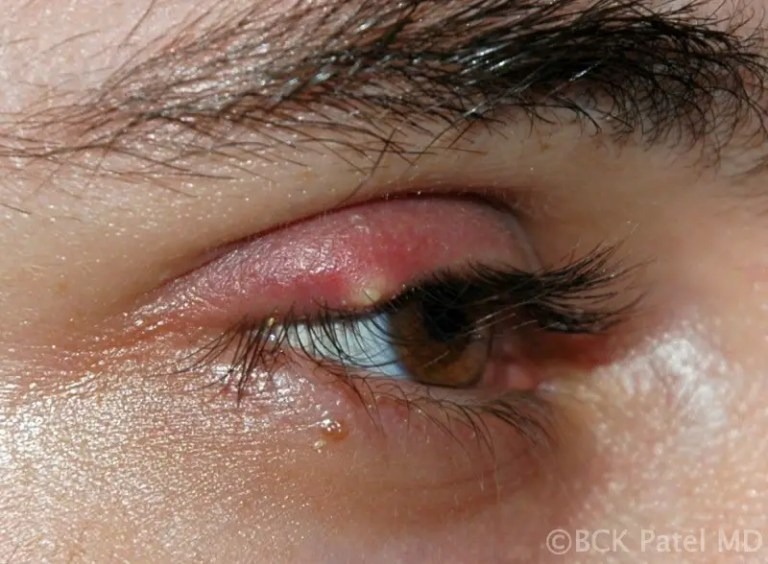
What It Means:
A painful, swollen lump near your eyelashes, commonly referred to as a stye, is often caused by blocked oil glands or bacterial infections.
Possible Causes:
- Poor hygiene or makeup residue
- Dry skin conditions
- Diabetes or other immune-compromising conditions
What to Do:
Applying a warm compress can help relieve the discomfort, but if styes occur frequently, consider consulting an eye specialist to evaluate potential underlying health concerns.
6. Corneal Ring (Arcus Senilis)

What It Means:
A gray or white ring around the cornea of the eye, called arcus senilis, is often a sign of aging but can also indicate high cholesterol levels.
Possible Causes:
- High cholesterol or triglycerides
- Aging-related eye changes
- Cardiovascular disease risk
What to Do:
If you’re under 40 and notice this symptom, it’s crucial to consult a healthcare provider for a cholesterol check and cardiovascular assessment.
7. Persistent Fatigue

What It Means:
Occasional tiredness is normal, but chronic fatigue that interferes with daily activities can be a warning sign of underlying health conditions.
Possible Causes:
- Anemia (low iron levels)
- Thyroid disorders
- Chronic fatigue syndrome or sleep apnea
What to Do:
If fatigue persists despite adequate rest and nutrition, seek medical advice to investigate potential deficiencies or disorders.
8. Changes in Bowel Habits

What It Means:
Sudden or persistent changes in bowel habits, such as diarrhea, constipation, or unusual stool color, may indicate digestive issues or more serious conditions.
Possible Causes:
- Irritable bowel syndrome (IBS)
- Food intolerances
- Colorectal cancer or gastrointestinal infections
What to Do:
If changes in bowel habits last more than two weeks, consult a healthcare professional to rule out serious gastrointestinal disorders.
Conclusion
Staying aware of these bodily symptoms can empower you to take proactive steps in managing your health. Early detection and timely medical intervention can significantly improve health outcomes and prevent minor issues from turning into major concerns.
Always listen to what your body is telling you, and if you notice persistent or unusual symptoms, seek medical advice promptly.
Please SHARE this article with your family and friends to spread awareness about these important health signs.
